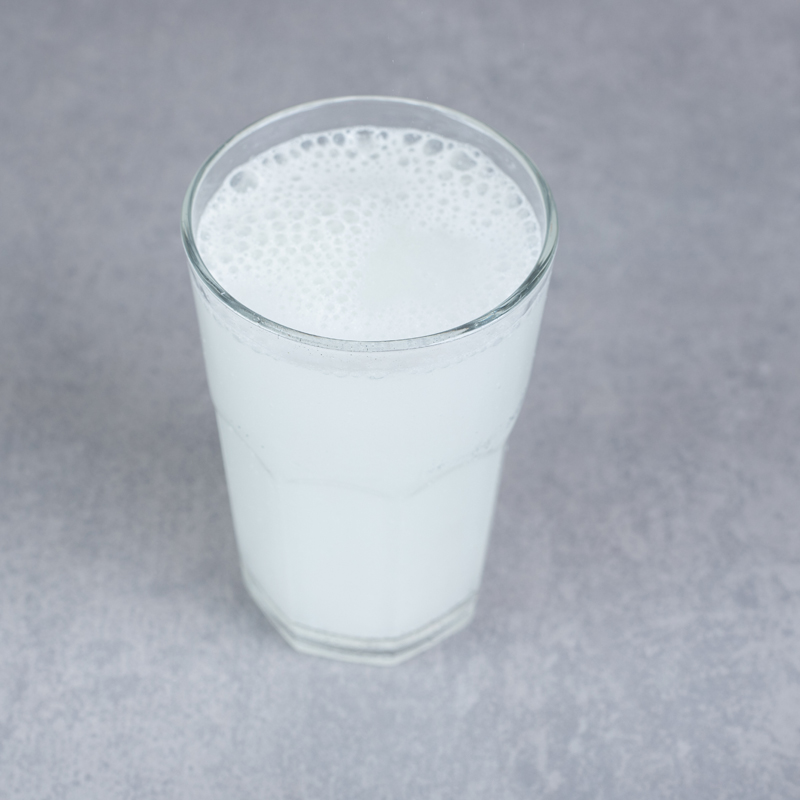
100 gr |
-- |
|
|---|---|---|
| Carbohydrate (gr) | 15.04 |
4928.47 |
| Protein (gr) | 3.59 |
1176.23 |
| Fat (gr) | 12.46 |
4083.43 |
| Fiber (gr) | 1.36 |
445.97 |
| Cholesterol (mg) | 14.64 |
4795.8 |
| Sodium (mg) | 325.27 |
106557.75 |
| Potassium (mg) | 392.16 |
128471.4 |
| Calcium (mg) | 78.15 |
25603.27 |
| Vitamin A (mg) | 46.04 |
15084.01 |
| Vitamin C (mg) | 6.16 |
2019.31 |
| Iron | 0.62 |
203.1 |
Milk is one of the most complete and beneficial sources of nutrition, especially for children. It provides essential nutrients that support balanced and comprehensive growth. The importance of milk for children lies in its wide range of nutrients, including protein, fats, carbohydrates, vitamins, and minerals, all of which contribute to healthy development.
Proteins in milk are vital for muscle growth and tissue repair, while its fats provide necessary energy for daily activities and play a crucial role in the development of the nervous system. Additionally, milk contains vitamins such as A, D, and B12, each contributing to key functions:
Milk is also rich in minerals like calcium, phosphorus, and potassium. These nutrients contribute to bone formation, muscle growth, and maintaining the body’s electrolyte balance. Furthermore, milk serves as an excellent source of hydration, helping children maintain their fluid levels and electrolyte needs.
Calories in 100 ml of semi-skimmed milk are 45.9 calories
Milk remains highly beneficial for adolescents and adults, offering a rich source of nutrients essential for maintaining health and promoting proper growth during these stages of life.
Milk's high protein content, containing all essential amino acids, supports muscle repair and growth. It is especially beneficial for physically active individuals and athletes.
As a top source of calcium, milk helps build and maintain strong bones and teeth. It also plays a role in preventing bone-related conditions like osteoporosis.
Milk provides balanced energy through its carbohydrates and fats, making it suitable for active individuals. Low-fat versions can aid in weight management and contribute to a feeling of fullness.
Potassium in milk helps regulate blood pressure by counteracting sodium’s effects, supporting a healthy heart.
Milk contains nutrients that can help reduce stress and depression, offering calming effects and supporting cognitive health.